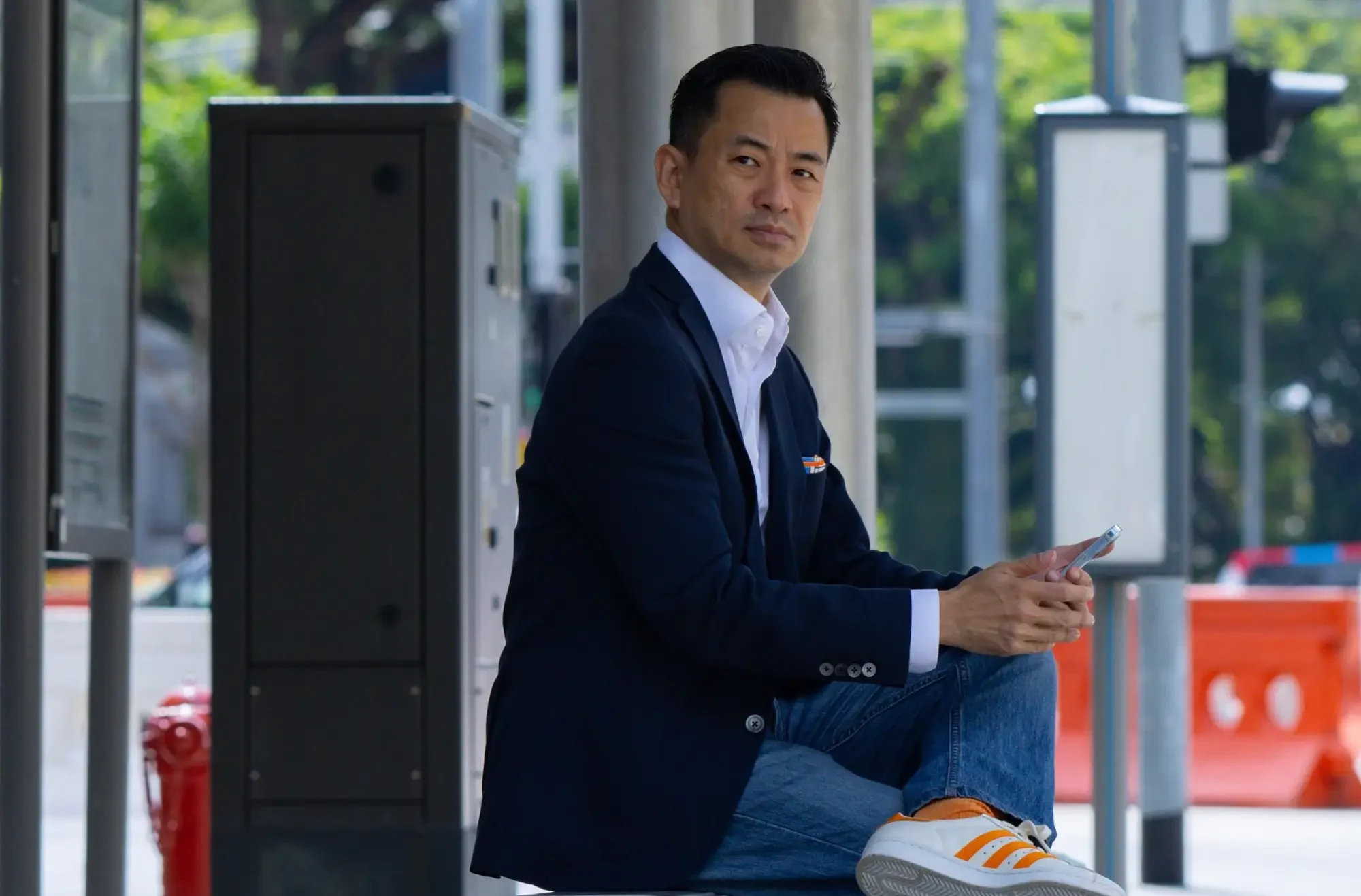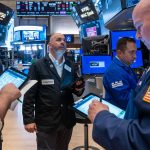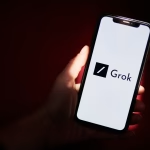Former UBS Banker Quit to Buy Freedom, Not Status: His $20k Life Upgrade
Eric Sim, 55, who spent over two decades in the banking world as a managing director at UBS, believes that true wealth comes from using money to gain freedom — not to show off success.
The pursuit of success in global finance often comes with unmistakable symbols — Swiss watches, sports cars, and corner offices. Yet for Eric Sim, a former UBS managing director, true wealth arrived not in the form of a luxury asset but in a decision: to stop chasing status and start buying freedom.
As first reported by Business Insider, Sim left banking in 2017 after more than two decades in the industry. His early retirement wasn’t funded by a windfall or lucky stock pick, but by a philosophy that challenged everything modern finance celebrates — restraint over indulgence, purpose over peer pressure.
The Banker Who Chose Simplicity
For years, Sim’s world revolved around quarterly bonuses, client deals, and the unspoken competition to signal success. “When I was a young banker, I often heard colleagues bragging about their new watches or sports cars,” he told Business Insider. Eventually, he joined in, buying a $3,000 watch — only to realize the satisfaction lasted mere weeks.
Soon, the watch found its way into a drawer, replaced by a modest Timex he still wears today. That moment marked a quiet but profound shift in his mindset — a recognition that the pursuit of material validation had become a trap. While others upgraded to supercars and private wine cellars, Sim redirected his earnings toward something intangible yet infinitely more valuable: the ability to choose how he spent his days.
Redefining Success in an Age of Excess
In banking, restraint is rarely rewarded. The culture prizes expansion — bigger deals, longer hours, higher stakes. But for Sim, the breakthrough came when he realized that saying no was the real act of power.
By avoiding lifestyle inflation, he accumulated not just savings but flexibility. That financial discipline eventually allowed him to retire in his 40s, shifting from boardrooms to classrooms. In 2024, he enrolled in a six-week landscape architecture course at UC Berkeley — a decision that cost about $20,000 in fees and travel but bought something far greater: time and autonomy.
“Most of my peers are still working because they stretched themselves financially with expensive purchases,” Sim explained. “By not splurging, I could pursue experiences that matter.”
His point resonates beyond banking. Across sectors, professionals are beginning to question whether wealth should be measured by possessions or possibilities.
The New Currency of Freedom
The notion of “buying freedom” — using money to reclaim time — has gained traction among economists and psychologists alike. Studies from Harvard Business School and the University of British Columbia show that people who spend on time-saving activities or flexibility report significantly higher life satisfaction than those who invest in status symbols.
In other words, financial freedom isn’t about quitting work — it’s about changing one’s relationship with it. When work becomes a choice, not an obligation, its meaning transforms.
For Sim, freedom meant choosing the projects and people that inspired him. After leaving UBS, he became a published author, speaker, and career coach — all roles that aligned more with personal values than quarterly profit targets. His story mirrors a broader shift among high achievers seeking a form of success that feels sustainable, not performative.
Why the Luxury Trap Is So Hard to Escape
From a behavioral economics perspective, the desire to display wealth is deeply ingrained. Dr. Juliet Schor, a sociologist at Boston College, has written extensively about “competitive consumption” — the tendency for people to benchmark success against peers rather than intrinsic goals. In high-income fields like finance, this dynamic can become self-reinforcing.
Every bonus season becomes a race not just for money but for validation. A new car or watch signals belonging — until the next cycle begins. The result? A treadmill of aspiration that feels productive but ultimately drains both time and identity.
Sim’s rejection of that treadmill offers a rare counter-narrative: a reminder that prestige loses power when one’s self-worth is no longer for sale.
A Practical Blueprint for Financial Independence
What distinguishes Sim’s story is that it’s not built on extreme minimalism or radical investing. Instead, it rests on moderate, long-term habits:
-
Live below your means even when your income rises.
-
Invest in flexibility, not image.
-
Define success by autonomy, not accumulation.
Financial planners increasingly echo this advice. According to a 2025 report from Fidelity Investments, 63% of early retirees attribute their independence not to extraordinary earnings but to consistent restraint during their peak earning years.
That finding aligns closely with Sim’s “three-stage” framework of life:
-
Stage One: Youth, when time and health abound but money is scarce.
-
Stage Two: Mid-career, when money and health coexist but time vanishes.
-
Stage Three: Retirement, when time and money return but health fades.
Between Stage Two and Stage Three, Sim believes, lies a “magical stage” — a fleeting period when all three intersect. His goal was to stretch that stage as long as possible by keeping lifestyle costs low.
For professionals reading this, the message is clear: every unnecessary expense in Stage Two shortens the window of freedom later on.
The Legal and Economic Dimensions of Financial Freedom
Although Sim’s insights are personal, they intersect with larger financial policy and workplace trends. Across OECD nations, early retirement and “mini-retirement” models are reshaping traditional career paths — raising new legal and economic considerations.
Pension Portability and Wealth Planning
Under current frameworks in both the U.K. and Singapore (where Sim is based), retirees face complex rules governing when and how they can access pensions or CPF savings. The broader lesson, say analysts at the Financial Times, is that wealth preservation laws increasingly reward early, strategic planning. Individuals who understand the tax implications of investment income, overseas assets, and withdrawal timing gain significant long-term advantages.
Meanwhile, legal experts caution that the freedom to retire early comes with fiduciary responsibilities — particularly for executives managing corporate options, deferred bonuses, or equity stakes. According to the Harvard Law School Forum on Corporate Governance, early retirement packages must be structured to avoid conflicts of interest, insider-trading risks, and non-compete breaches.
In short, financial independence doesn’t exempt professionals from regulation; it makes understanding those regulations even more essential.
Expert Insight
Financial experts such as Professor Alicia Munnell, director of the Center for Retirement Research at Boston College, have noted in Bloomberg and CRR reports that true financial freedom depends on responsible planning and flexibility, not luxury or avoidance of responsibility.
Her point underscores a paradox: buying freedom isn’t simply emotional; it’s strategic. It requires legal awareness, disciplined planning, and an honest appraisal of what happiness costs.
The Psychology of Letting Go
Beyond economics, the journey toward simplicity demands psychological courage. In societies where identity is intertwined with profession, leaving a prestigious title can feel like erasing part of oneself.
Sim recalls initially worrying that driving a smaller car might make others perceive him as less successful. “Surprisingly, no one cared,” he said. The realization that others were too preoccupied with their own image was liberating — and emblematic of a broader truth: much of what we fear about downward mobility exists only in our minds.
Psychologists refer to this as the spotlight effect — the cognitive bias that makes people overestimate how closely others observe their choices. Overcoming that bias can unlock an entirely new relationship with money, status, and fulfillment.
From Managing Director to Managing Time
Today, Sim divides his time between speaking engagements, writing, and mentoring young professionals. His book Small Actions: Leading Your Career to Big Success distills much of his philosophy — emphasizing that small behavioral shifts often yield the largest lifestyle dividends.
He’s quick to note that financial independence isn’t a finish line but an ongoing practice. “Use your time and money on the right things,” he advises. Whether that’s a creative pursuit, family time, or lifelong learning, the value lies in deliberate living.
His decision to attend Berkeley’s landscape architecture course wasn’t just leisure — it symbolized reclaiming curiosity long deferred by corporate deadlines.
What CEOs Can Learn from Sim’s Journey
For business leaders, Sim’s story offers a mirror. In an era defined by burnout, attrition, and “quiet quitting,” executives are rediscovering that longevity in leadership depends not only on performance but on personal sustainability.
Cultures that prize constant comparison erode creativity; those that value autonomy and purpose breed loyalty and innovation. By modeling moderation, leaders send a message that well-being is a strategic asset — not a sign of weakness.
As organizations evolve toward hybrid work and flatter hierarchies, this mindset may become a competitive advantage. Freedom, it turns out, is contagious: when leaders claim it for themselves, they create space for others to do the same.
Reader Takeaway: The Real ROI of Restraint
Freedom isn’t free — it’s earned through decisions that often go unnoticed. Every avoided impulse purchase, every strategic delay, every act of patience compounds quietly until it yields the rarest dividend: choice.
For Eric Sim, the most valuable thing money ever bought was the ability to sit at a bus stop in a blue blazer, content and unhurried — proof that the richest life may simply be the one lived on one’s own terms.
Retirement and Financial Freedom: FAQs for Professionals
1. How can professionals retire early without a massive income?
Early retirement isn’t about earning millions — it’s about controlling spending and building flexibility. Former UBS banker Eric Sim says living below your means and avoiding luxury traps gave him the freedom to retire in his 40s. Experts agree that consistency and low debt matter more than big paychecks.
2. What’s the difference between financial freedom and traditional retirement?
Financial freedom means having enough savings or passive income to choose how you spend your time, even if you continue working. Traditional retirement, by contrast, often means completely stopping work at a set age. Eric Sim’s story illustrates that freedom — not luxury — is the true goal of wealth.
3. What are the smartest steps to achieve financial freedom before 50?
Financial advisors recommend starting early: invest consistently, avoid lifestyle inflation, and prioritize flexibility over status purchases. As Eric Sim showed, small financial sacrifices during peak earning years can create decades of freedom later.
Source: Business Insider, “I Was an MD at a Big Bank, and I Retired Early. Real Happiness Came from Buying My Freedom, Not an Expensive Watch,” by Kwan Wei Kevin Tan, November 6, 2025.














